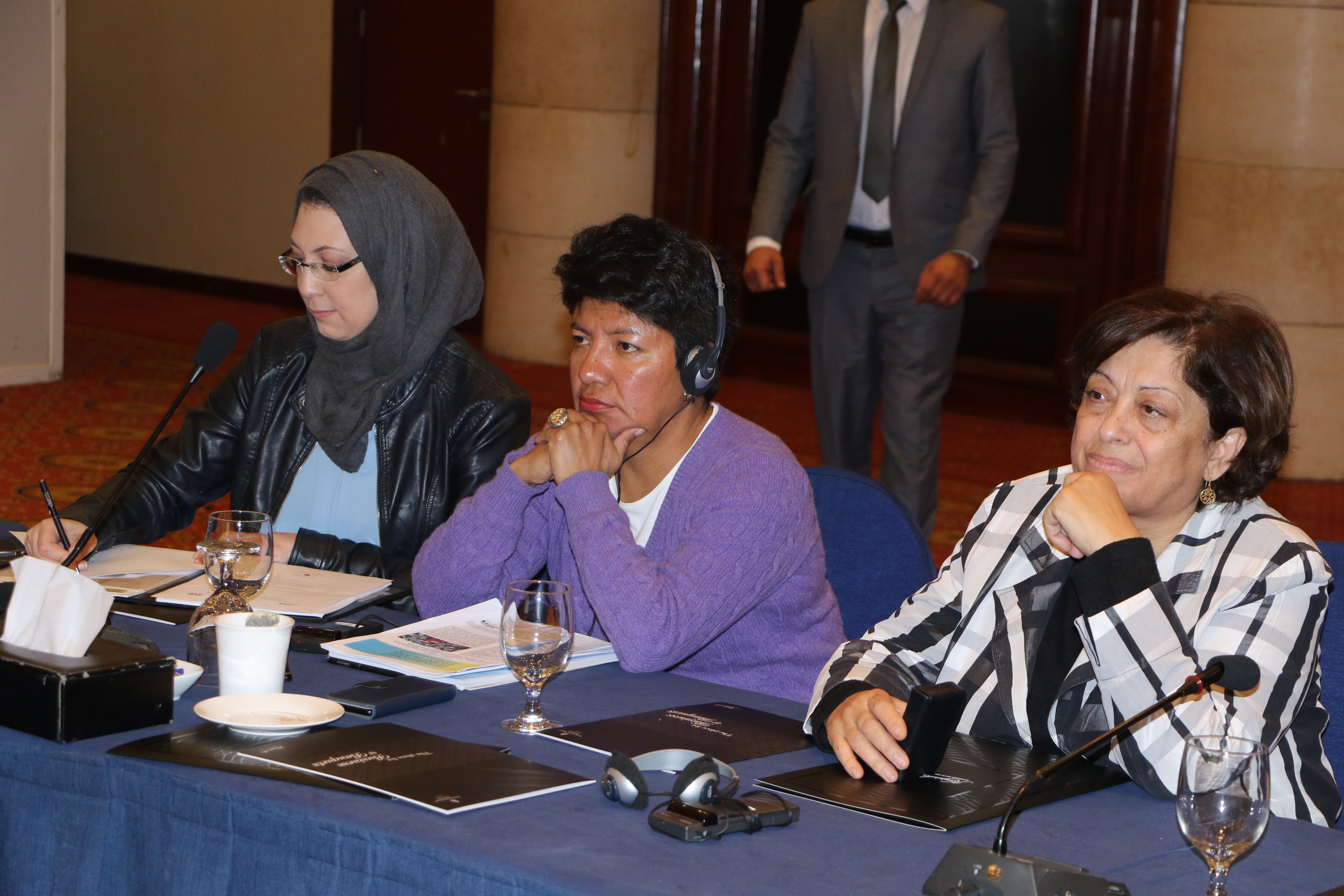Consultations on the implementation of UNSCR 1325 concludes in Amman
Date:
On 28 February 2016, the Jordanian National Commission for Women (JNCW), in partnership with UN Women and with generous support from the Government of Japan, held the concluding dialogue on the implementation of the United Nations Security Council Resolution (UNSCR) 1325 (2000) on women, peace and security in Jordan. The purpose of this final dialogue of a series of country-wide consultations was to present the results of the governorate-level dialogues on women, peace and security in Jordan to senior stakeholders. Participants were invited to provide their inputs on these results and discuss priority areas for the Jordanian National Action Plan (NAP) to implement UNSCR 1325.
The dialogue concluded a series of ten consultations carried out across Jordan between January 31st and February 28th, 2016. The opening dialogue of this series was convened with the National Coalition for the Implementation of UNSCR 1325, the consultative body responsible for leading the NAP drafting process. In this meeting, members of the Coalition provided preliminary recommendations and were consulted on the remaining nine consultations. At the governorate level, seven dialogues were held with diverse stakeholders (including women, men, youth, local officials, religious leaders, police, and civil society) from Amman, Zarqa, Mafraq, Ajloun, Jerash, Karak, Ma’an, Tafila, Ramtha and Irbid, in addition to a separate consultation with refugees residing in Mafraq. Different constituencies were highly engaged in the national consultation process, stating that these consultations enabled them to learn about UNSCR 1325 and have an open conversation to discuss their concerns and develop recommendations related to women’s inclusion in peace and security processes. As one participant from Ma’an stated, "We - women in Jordan - are concerned with peace and security as Jordan is affected by the conflicts that take place in neighboring countries. Implementing UNSCR 1325 is key to consolidating Jordan's humanitarian role and serving international causes such as refugees."
Participants at the local level underlined the importance of local communities' engagement in promoting and implementing this resolution, stressing the necessity of building the capacity of civil society organizations and female leaders to support the resolution. The need to raise awareness about UNSCR 1325 by religious and community leaders and through local media channels was also elicited. To fulfill Jordan’s commitment to effectively implement UNSCR 1325, participants suggested increasing the number of women participating in peacekeeping missions in areas of conflict, including by taking steps to fulfill the 30% quota for women in peacekeeping forces as well as by promoting women’s participation in local peacemaking and peacebuilding initiatives. Additionally, it was recommended to foster regional training opportunities for women engaged in peace processes.
The Jordanian NAP will identify key issues concerning women in the context of peace and security in Jordan, and plan a manageable set of priority actions to address. Such issues may include women’s inclusion in the security sector and peacekeeping missions; mainstreaming of a gender perspective into peacebuilding initiatives undertaken by Jordan; promoting women’s participation in peacekeeping troops and in peace negotiations outside of Jordan; and provision of gender-responsive services to female refugees in Jordan.
